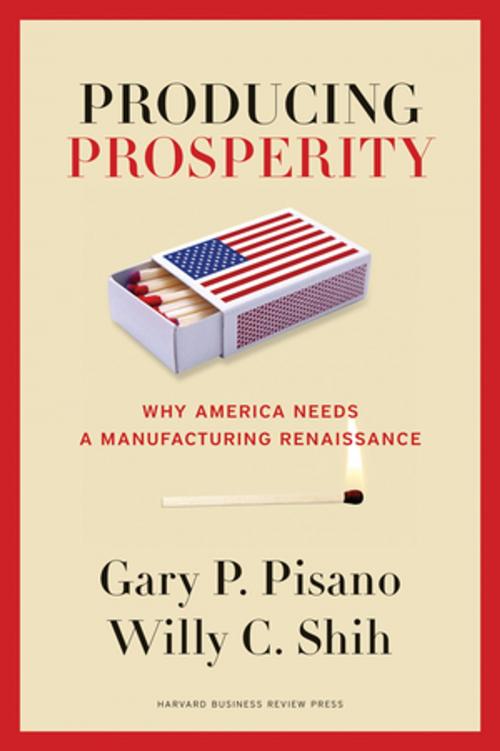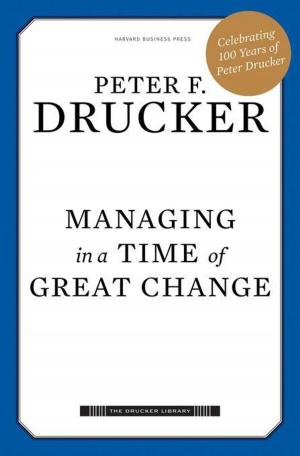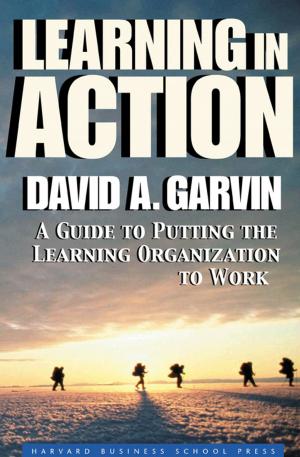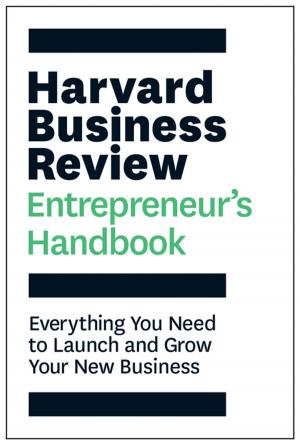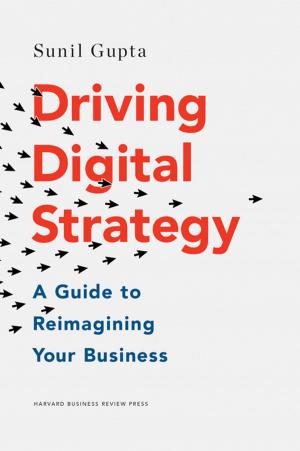Producing Prosperity
Why America Needs a Manufacturing Renaissance
Business & Finance, Management & Leadership, Decision Making & Problem Solving, Management| Author: | Gary P. Pisano, Willy C. Shih | ISBN: | 9781422187548 |
| Publisher: | Harvard Business Review Press | Publication: | September 25, 2012 |
| Imprint: | Harvard Business Review Press | Language: | English |
| Author: | Gary P. Pisano, Willy C. Shih |
| ISBN: | 9781422187548 |
| Publisher: | Harvard Business Review Press |
| Publication: | September 25, 2012 |
| Imprint: | Harvard Business Review Press |
| Language: | English |
Manufacturing’s central role in global innovation
Companies compete on the decisions they make. For years-even decades-in response to intensifying global competition, companies decided to outsource their manufacturing operations in order to reduce costs. But we are now seeing the alarming long-term effect of those choices: in many cases, once manufacturing capabilities go away, so does much of the ability to innovate and compete. Manufacturing, it turns out, really matters in an innovation-driven economy.
In Producing Prosperity, Harvard Business School professors Gary Pisano and Willy Shih show the disastrous consequences of years of poor sourcing decisions and underinvestment in manufacturing capabilities. They reveal how today’s undervalued manufacturing operations often hold the seeds of tomorrow’s innovative new products, arguing that companies must reinvest in new product and process development in the US industrial sector. Only by reviving this industrial commons” can the world’s largest economy build the expertise and manufacturing muscle to regain competitive advantage. America needs a manufacturing renaissance-for restoring itself, and for the global economy as a whole.
This will require major changes. Pisano and Shih show how company-level choices are key to the sustained success of industries and economies, and they provide business leaders with a framework for understanding the links between manufacturing and innovation that will enable them to make better outsourcing decisions. They also detail how government must change its support of basic and applied scientific research, and promote collaboration between business and academia.
For executives, policymakers, academics, and innovators alike, Producing Prosperity provides the clearest and most compelling account yet of how the American economy lost its competitive edge-and how to get it back.
Manufacturing’s central role in global innovation
Companies compete on the decisions they make. For years-even decades-in response to intensifying global competition, companies decided to outsource their manufacturing operations in order to reduce costs. But we are now seeing the alarming long-term effect of those choices: in many cases, once manufacturing capabilities go away, so does much of the ability to innovate and compete. Manufacturing, it turns out, really matters in an innovation-driven economy.
In Producing Prosperity, Harvard Business School professors Gary Pisano and Willy Shih show the disastrous consequences of years of poor sourcing decisions and underinvestment in manufacturing capabilities. They reveal how today’s undervalued manufacturing operations often hold the seeds of tomorrow’s innovative new products, arguing that companies must reinvest in new product and process development in the US industrial sector. Only by reviving this industrial commons” can the world’s largest economy build the expertise and manufacturing muscle to regain competitive advantage. America needs a manufacturing renaissance-for restoring itself, and for the global economy as a whole.
This will require major changes. Pisano and Shih show how company-level choices are key to the sustained success of industries and economies, and they provide business leaders with a framework for understanding the links between manufacturing and innovation that will enable them to make better outsourcing decisions. They also detail how government must change its support of basic and applied scientific research, and promote collaboration between business and academia.
For executives, policymakers, academics, and innovators alike, Producing Prosperity provides the clearest and most compelling account yet of how the American economy lost its competitive edge-and how to get it back.
